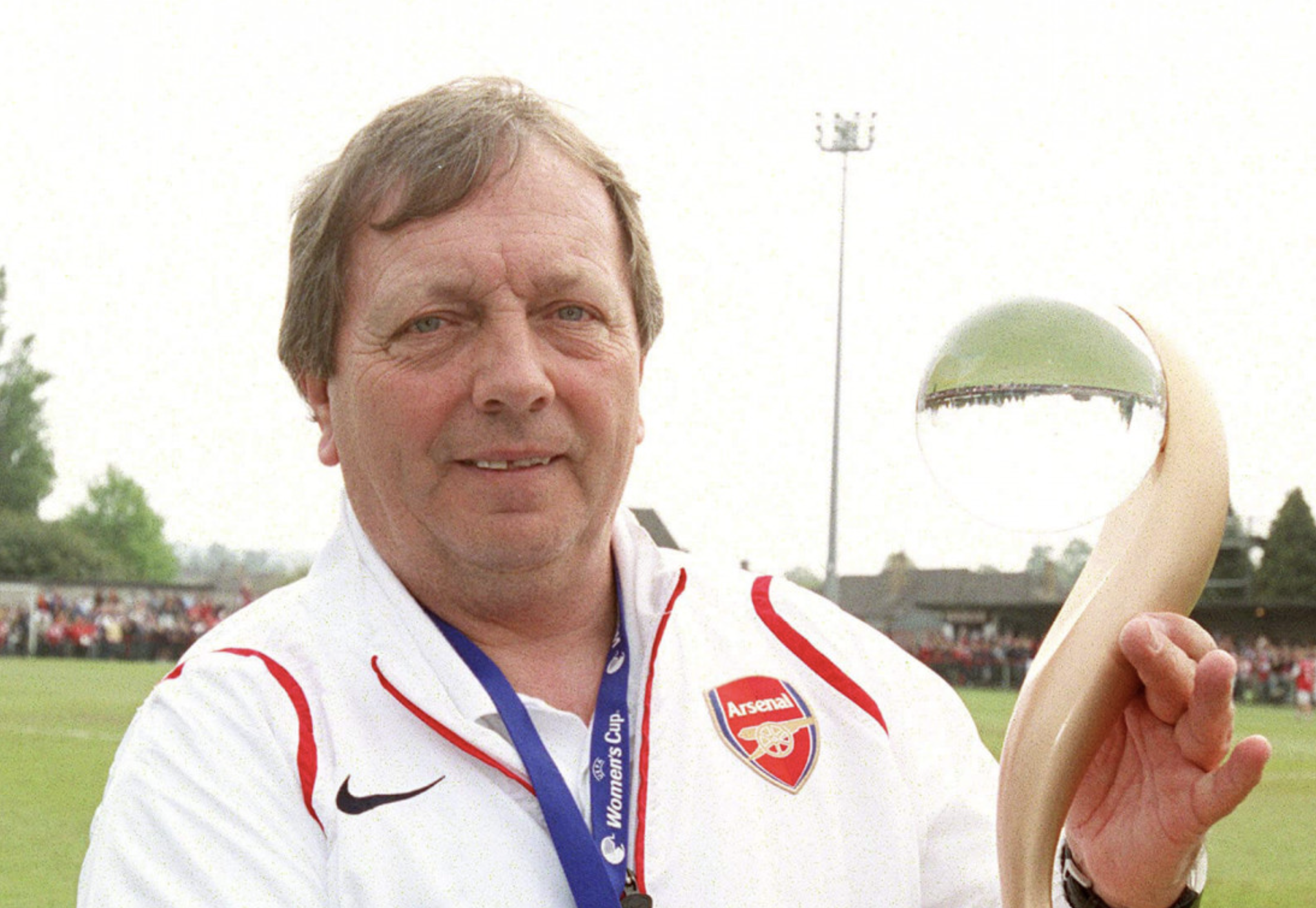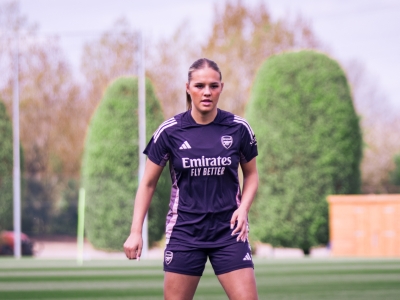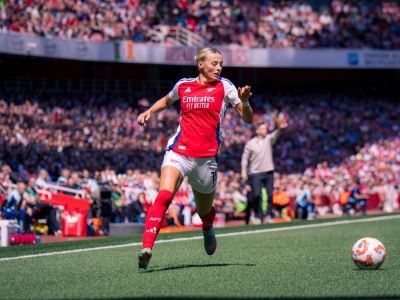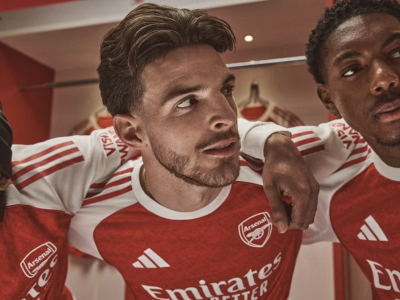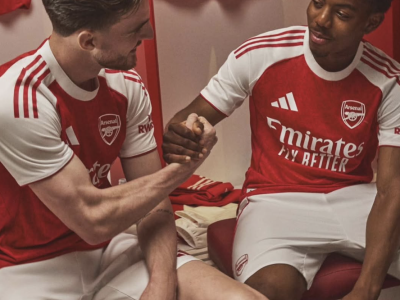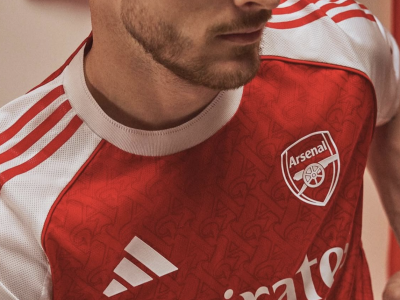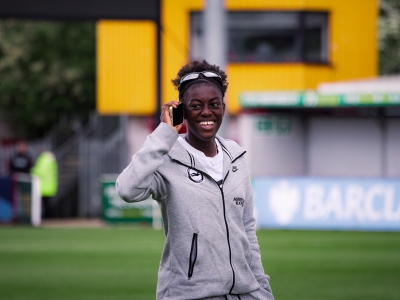The European glory of 2007 is much celebrated at Arsenal. The sight of that undefeatable side working together to raise the UEFA Cup welcomes all who approach Emirates Stadium from the south. It is sung about in the North (and through to the East Stand) on matchdays. It was the defining moment, the peak of the golden era of the Arsenal Ladies (as they were then known). So how did Arsenal climb that mountain and achieve what no other English side has managed to do since?
Part 1: The Dream
The dream of Europe had existed long before that magical afternoon at Meadow Park. As early as 1994, as the Men’s Team were preparing for their Cup Winner’s Cup Final with Parma, manager Vic Akers was hoping that one day, his Ladies side would also get their chance to perform against the best on the continent.
‘I think the time is right for a European ladies tournament for Champions and Cup Winners. There would be plenty of support in Germany and Scandinavia, where the ladies football is also very popular. The prospect of playing in Europe would do wonders for the ladies game in England. It would provide a massive incentive to raise standards.’
Seven years later, in 2001, Akers’ hopes were at last realised, with the creation of the UEFA Women’s Cup. 33 teams competed in the first edition, with League Champions Arsenal one of those hoping to be victorious.
A trip to Switzerland saw Arsenal compete in a round robin tournament with hosts Bern, Polish champions AZS Wroc?aw and Israeli side Hapoel Tel Aviv. With a strikeforce containing Angela Banks and Marieanne Spacey, Arsenal swept the opposition aside with ease and progressed to the quarter final stage.
Alas, that would prove to be the end of Arsenal’s journey, with a quarter final with Toulouse that went the distance. In front of just under 1,700 fans at Meadow Park, Ciara Grant’s first half header gave the Gunners the perfect start. But Toulous rallied in the second half, and under severe pressure, Arsenal cracked. A defensive mix-up gifted Sandrine Rouquet the chance to equalise with 12 minutes left, and crucially, give Toulouse the away goal.
The tie would be decided in Southwest France. With just over 10 minutes left, Melanie Briche looked to have done just that, scoring from a free kick on the edge of the penalty area, after Leane Champ was sent off for handball. But when Toulouse saw one of their own sent to the dressing room shortly afterwards, Arsenal found hope, and Ellen Maggs’ lob right on 90 took the game to an extra 30 minutes. Arsenal pushed hard for the winner, but it would be Marie-Ange Kramo, with 5 minutes to play, who would end the contest and seal Toulouse’s spot in the Semi Finals.
Arsenal may have been out, but the desire to reach the top only burned brighter. The following season, they went one better, making it to their first Semi Final against Fortuna Hjørring of Denmark. But once again, Arsenal hit their ceiling, badly outclassed over both legs. Angela Banks’ away goal on 68 minutes gave Arsenal hope for the second leg after Fortuna had roared into a 3-0 lead. Instead, what little hope it had offered was swept away in disastrous fashion at Barnet’s Underhill stadium. In one of the worst home results in Arsenal’s history, Fortuna demolished their English opponents 5-1, completing an 8-2 rout on aggregate.
Two years on, and it was the Semi Finals again for Arsenal, this time against Swedish side Djurgården/Älvsjö. And this time, it was Arsenal who had the advantage. Julie Fleeting, who had signed for the club the previous season, gave Arsenal a vital away goal in a 1-1 draw in Solna. Having earlier defeated Djurgården in the group stage as well, confidence was running high in the Arsenal camp that this would be the year they would reach their first final.
7th April 2005UEFA Cup Semi FinalDjurgården/Älvsjö 1-1 Arsenal??Julie Fleeting (23)??Elin Ekblom Bak (39) pic.twitter.com/95AAB2YUZw
— The Arsenal Women Archive (@TheAWArchive) April 7, 2025
‘It will be a hard game for Djurgården’ declared Faye White, speaking with Manish Bashin on the Football Focus sofa. ‘We’re pleased to have got the away goal, which puts us in a great position now for the home leg.’
White was confident Arsenal’s past experience in the competition, particularly in their last Semi Final appearance, would give them the edge, along with having strong support from the fans at Meadow Park.
‘We’re really looking forward to the next tie and hopefully get a good crowd. Arsenal fans can come out and support us, because if we can get a few thousand people there, it would really help to boost us.’
But once again, Arsenal fell short at home. Victoria Svensson’s glancing effort on the cusp of half-time was the difference, and once Champ saw red once again with 10 minutes to play, the game was truly up. Arsenal were close, the closest they had been, and yet, the moment had slipped through their fingers. And whilst they failed to make the jump, other teams around them were strengthening.
The following season, Arsenal didn’t even reach the semi finals, comfortably dispatched by eventual winners Frankfurt in the quarter finals. Whilst the conveyor belt of domestic success back home was in overdrive, Europe seemed to be drifting further out of reach. Had Arsenal’s moment passed? Would they ever get that close to footballing immortality again?

